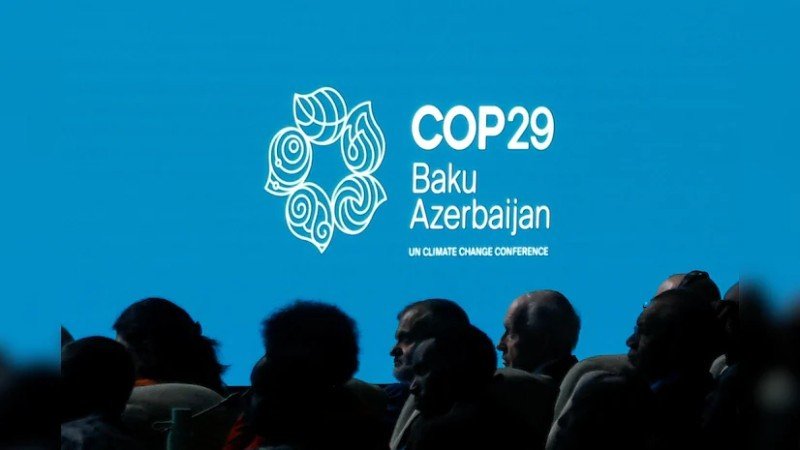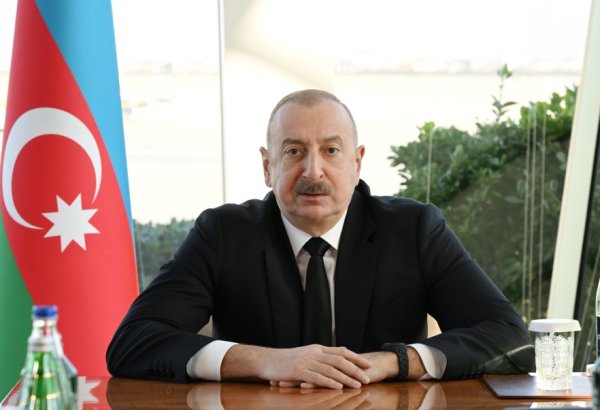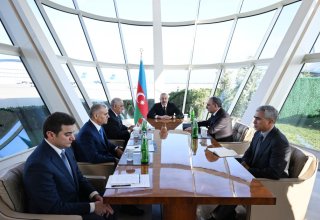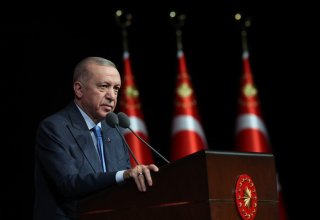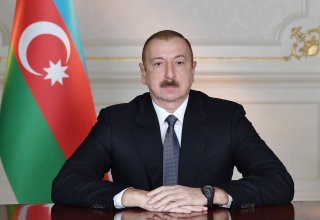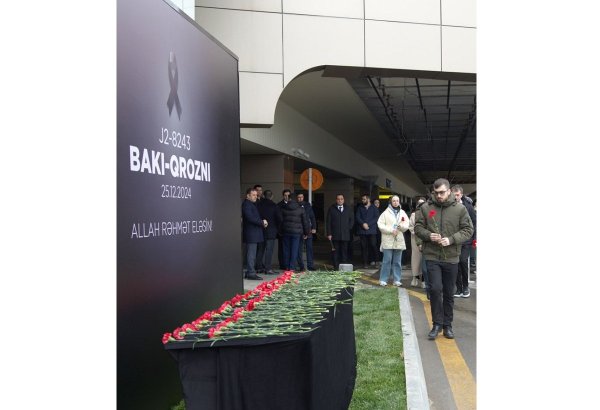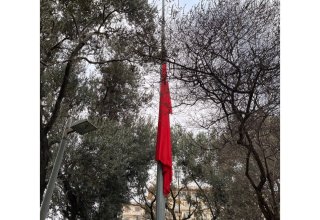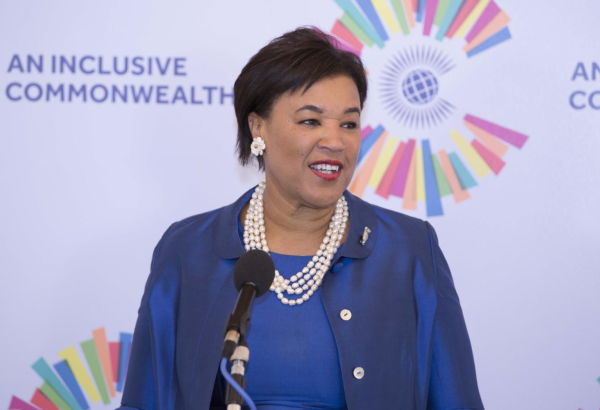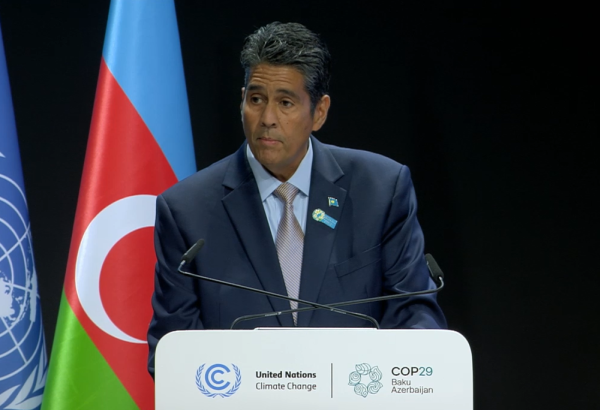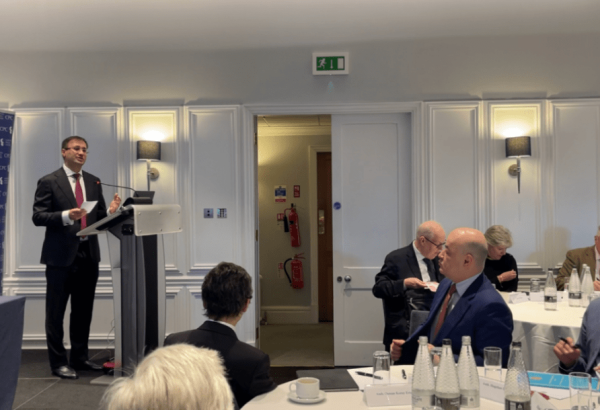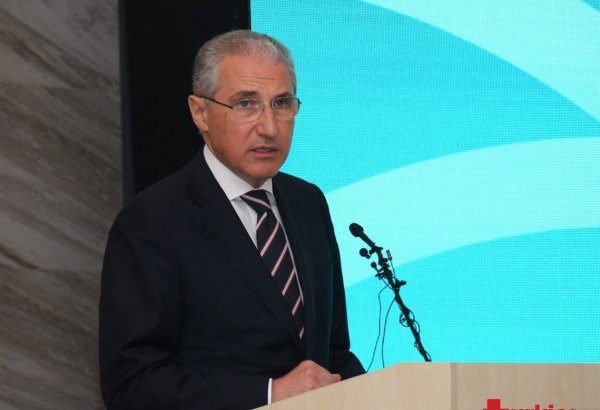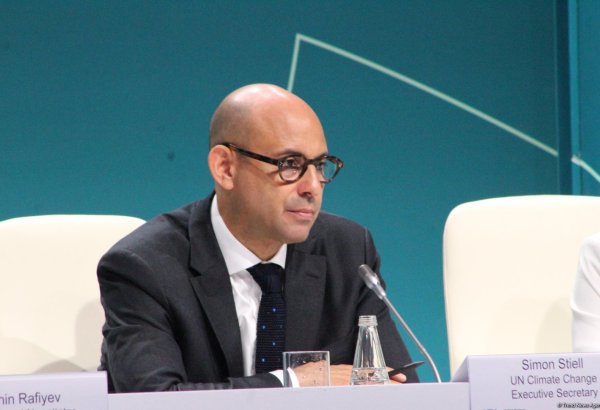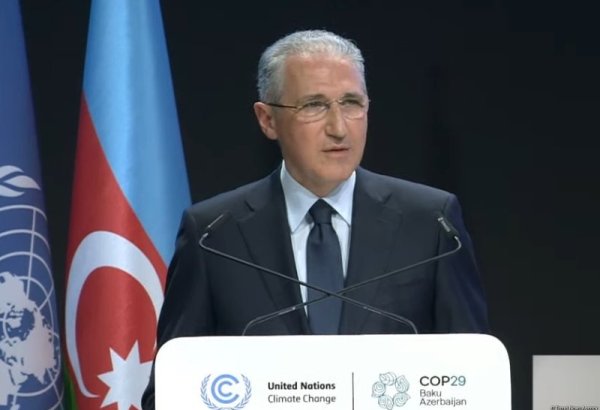BAKU, Azerbaijan, November 23. In a world grappling with geopolitical upheaval, economic turbulence, and the ever-looming threat of climate catastrophe, Azerbaijan’s hosting of the 29th Conference of the Parties (COP29) to the United Nations Framework Convention on Climate Change (UNFCCC) was more than just a logistical challenge—it was a geopolitical statement, TurkicWorld reports referred to BakuNetwork.
Against the backdrop of international intrigue and relentless pressure, Baku emerged as a beacon of diplomatic resilience, innovation, and leadership, delivering a summit that rewrote the playbook for global climate policy.
The Baku Finance Goal: Climate Funding Reimagined
At the heart of COP29’s legacy lies the landmark Baku Finance Goal, an audacious commitment that mandates developed nations to mobilize at least $300 billion annually for climate funding in developing countries by 2035. This figure not only surpasses previous targets by $50 billion but also sets a new benchmark for global climate finance.
European Commissioner for Climate Action Wopke Hoekstra captured the moment succinctly, calling COP29 the dawn of “a new era in climate finance,” and describing the Baku agreement as a watershed moment for the global fight against climate change. Yet this triumph was no accident—it was the culmination of months of intense backroom negotiations, deft diplomatic maneuvering, and an unwavering focus on shared goals.
Azerbaijan Under Fire: Weathering an Information War
From the outset, Azerbaijan faced a calculated barrage of disinformation campaigns aimed at derailing COP29 and tarnishing its role as host. These efforts were spearheaded by nations reluctant to increase their financial commitments, with Washington and Brussels leading the charge.
In the U.S., the Biden administration—preparing to transition power to President-elect Donald Trump—used the summit to sow chaos, leaving a minefield of unresolved climate issues for the incoming administration. Across the Atlantic, European Commission President Ursula von der Leyen boycotted the summit entirely, an act designed to downplay its significance and undermine developing nations’ bargaining power.
But perhaps the most conspicuous provocations came from German Foreign Minister Annalena Baerbock. Representing the Green Party, Baerbock ironically veered far from her ecological mandate, opting instead to weaponize unrelated issues such as human rights and visa disputes. Her actions served to distract from the summit’s core agenda and complicate Azerbaijan’s role as host, raising questions about the sincerity of her party’s commitment to climate justice.
Baku’s Diplomatic Jiu-Jitsu: Turning Challenges into Triumphs
Despite the external noise, Azerbaijan stayed the course. Leveraging its position as a bridge between East and West, Baku rallied developing nations to demand accountability from the world’s largest economies. This collective pressure forced the United States, the European Union, and other economic heavyweights to make concessions, culminating in the adoption of the Baku Finance Goal.
The summit wasn’t just a victory for Azerbaijan—it was a game-changer for global climate policy. By putting concrete financial obligations on the table, COP29 underscored the principle that global challenges require collective solutions. It also showcased how skillful diplomacy can transform an underdog into a power player on the international stage.
What Comes Next? The Road Ahead
The decisions made in Baku mark a turning point, but they also underscore the daunting road ahead. Climate change is a ticking clock, and the commitments made at COP29 must translate into swift and decisive action.
For Azerbaijan, the success of the summit was more than an organizational triumph—it was a statement of intent. Baku proved that even under relentless pressure and geopolitical sabotage, it could deliver a world-class forum with outcomes that matter. The lessons from COP29 will resonate far beyond the Caspian Sea, serving as a blueprint for future negotiations and a reminder that vision, resolve, and unity can overcome even the most formidable obstacles.
The Legacy of Baku’s Diplomacy: A Triumph of Unity Over Division
COP29 in Baku stands as a resounding testament to the power of diplomacy and solidarity in addressing global challenges. Azerbaijan demonstrated that sovereignty and independence are not barriers to effective international engagement; on the contrary, they are catalysts for progress when paired with vision and resolve.
The achievements of COP29 transcend the billions pledged for climate finance. They embody a collective shift toward meaningful action against the climate crisis, proving that even in the face of adversity, a nation can rise above external noise to deliver transformative outcomes.
As Baku’s example illustrates, when nations prioritize fairness, responsibility, and cooperation, they can bridge divides and chart a sustainable course for the future. The legacy of COP29 is not just a triumph for Azerbaijan—it’s a beacon of hope for the world, a rallying cry that unity and decisive action can surmount even the most pressing global challenges.
The Stage for Diplomacy Amid Geopolitical Chess
In global politics, every move is calculated, every event a piece on the chessboard. Yet COP29 in Baku showcased how, despite calculated provocations and strategic roadblocks, common sense and constructive dialogue can prevail. Against a backdrop of intrigue and sabotage, the summit not only met expectations but exceeded them, affirming that sound diplomacy is the antidote to even the most insidious attempts at disruption.
Propaganda vs. Pragmatism
From the moment Azerbaijan was announced as the host of COP29, it became the target of a concerted smear campaign. Western media, politicians, and NGOs launched a barrage of criticism, echoing a familiar script: accusations of human rights violations, democratic deficiencies, and deviation from so-called "civilized standards."
This rhetoric was neither new nor surprising. It’s the same playbook used by Western power centers against nations that assert their independence and achieve success on their own terms. But in Azerbaijan’s case, these attacks rang hollow.
- First, Baku’s selection was not imposed but unanimously endorsed by 200 member countries of the UNFCCC, underscoring the international community’s confidence in Azerbaijan’s organizational capabilities.
- Second, Azerbaijan has consistently proven itself as a reliable host of high-profile global events, from cultural festivals to geopolitical summits.
The criticism was less about reality and more about punishing Azerbaijan for its independent path—a path that defies Western narratives and resists attempts at external control.
Why Was Baku Targeted?
The reasons are clear. Azerbaijan’s steadfast defense of its national interests and confident position in global affairs challenge the traditional power dynamics that many Western nations seek to maintain. Baku’s refusal to play by the rules of foreign-dominated narratives makes it a prime target for disinformation and political pressure.
This frustration was amplified by the West’s chronic inability to address its own role in the climate crisis. Developed nations, particularly in the United States and Europe, have long sidestepped their responsibility for carbon emissions, preferring instead to deflect blame onto others. Azerbaijan’s successful hosting of COP29 exposed this hypocrisy, forcing the focus back onto substantive issues like climate financing—precisely what many in the West had hoped to avoid.
The Bigger Picture: Lessons from Baku
COP29 was more than a summit; it was a case study in how a nation, through diplomatic acumen and principled leadership, can turn adversity into advantage. It highlighted the failure of propaganda when confronted with constructiveness and collaboration. Most importantly, it underscored the potential for smaller nations to lead on the global stage, proving that size and power are no match for vision and determination.
The legacy of COP29 is a triumph of diplomacy over division, action over rhetoric, and unity over discord. It’s a reminder to the world that in tackling existential challenges like climate change, the only way forward is together.
A Masterclass in Diplomacy and Pragmatism
In the face of relentless attempts to undermine its credibility, COP29 in Baku emerged as an undeniable triumph. Over 75,000 participants from across the globe lauded the summit's impeccable organization, streamlined logistics, and the creation of an environment that fostered productive dialogue. Azerbaijan's ability to deliver a seamless, high-impact event has set a new benchmark for global climate diplomacy.
A Defining Moment: Historic Funding Commitment
The summit's most groundbreaking achievement was the agreement to channel $300 billion annually to developing countries for combating climate change. This landmark decision, endorsed by nearly 200 nations, underscored the power of diplomacy to resolve even the most intractable global challenges. It was more than just a financial commitment—it was a symbol of collective action at a time when the world needs unity more than ever.
Azerbaijan’s leadership was pivotal in steering this agreement to fruition. Acting as a bridge between developing and developed nations, Baku unified the voices of underrepresented countries and effectively pressured wealthier states to step up. For years, developed nations had evaded their responsibilities under climate agreements. In Baku, that era of complacency came to an end.
Discrediting the Propaganda Machine
Efforts to tarnish Azerbaijan’s reputation in the lead-up to COP29 fell flat. Orchestrators of these smear campaigns found themselves in an awkward corner as the international community saw through the baseless accusations. Reality, as demonstrated during the summit, contradicted the narratives propagated by detractors.
Rather than being derailed by these attacks, Azerbaijan emerged stronger. Its commitment to constructive engagement and transparent diplomacy resonated on the global stage. The outcome? A resounding validation of Azerbaijan’s principled approach to international relations.
Azerbaijan’s Rising Global Profile
The success of COP29 serves as a powerful testament to Azerbaijan’s ability to navigate complex international dynamics with finesse. It also highlights the transformative role of constructive diplomacy in addressing pressing global challenges. By delivering on its promises and staying true to its values, Azerbaijan has set a gold standard for accountability and cooperation.
This summit wasn’t just about climate—it was about leadership. Azerbaijan proved that fairness and integrity could triumph over disinformation and bias. For critics, COP29 offered an undeniable lesson: Azerbaijan is not just a participant on the global stage—it’s a key player capable of driving transformative change.
A Blueprint for Global Diplomacy
COP29 in Baku stands as a shining example of how strategic thinking and skilled diplomacy can overcome even the most formidable obstacles. Azerbaijan’s demonstration of sovereignty and independence didn’t isolate it but rather amplified its role as a trusted partner in global negotiations. The summit’s outcomes underline a universal truth: global challenges demand collective action.
The "Baku Finance Goal"—the commitment to allocate hundreds of billions annually for climate initiatives—marks a watershed moment in the fight against climate change. This bold step will shape global climate policy for decades, serving as both a challenge and an inspiration for future summits.
A Legacy of Hope and Action
For Azerbaijan’s critics, COP29 was a wake-up call. For the world, it was a beacon of hope. The summit reminded us that collaboration, pragmatism, and strategic vision could dismantle barriers and build bridges. It was a resounding declaration that environmental crises cannot be tackled in isolation and that global solidarity is not a luxury but a necessity.
As the dust settles on COP29, the message from Baku is clear: progress is possible when nations unite behind shared goals. The summit didn’t just outline a roadmap for climate action—it inspired a renewed sense of purpose and responsibility.
Baku’s success is more than a diplomatic victory for Azerbaijan; it is a call to action for the global community. Now, the world must take this momentum forward, building on the foundation laid in Baku. The opportunity for transformative change is here—and it’s up to all of us to seize it.








